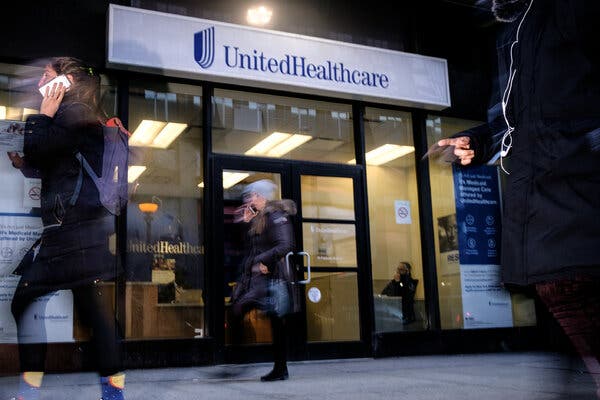Hospitals, doctors and clinics expressed frustration that they will have to wait even longer for reimbursements after hackers paralyzed the largest U.S. billing clearinghouse.

More than two weeks after a cyberattack, financially strapped doctors, hospitals and medical providers on Friday sharply criticized UnitedHealth Group’s latest estimate that it would take weeks longer to fully restore a digital network that funnels hundreds of millions of dollars in insurance payments every day.
UnitedHealth said that it would be at least two weeks more to test and establish a steady flow of payments for bills that have mounted since hackers effectively shut down Change Healthcare, the nation’s largest billing and payment clearinghouse, on Feb. 21.
But desperate providers that have been borrowing money to cover expenses and employee payrolls expressed skepticism at that estimate, worrying that it could be months before the logjam of claims and payments cleared up.
“We have nearly a three-week gap in cash flow,” said Brad Larsen, a psychologist and founder of Portland Mental Health & Wellness in Oregon, adding that the group had received only about 10 percent of its expected insurance payments. He said the practice had to borrow $300,000 to meet its first of two payrolls for the month. “It’s not good.”
In an apparent move to mollify some providers who had expressed disappointment at United’s earlier remedy of a loan program that offered stopgap payments of as little as $20 a week, the parent company agreed to issue advances. United announced that its insurer, the largest in the United States, would begin advancing payments to hospitals and doctors based on amounts billed before the cyberattack.
And given that Change manages one of every three U.S. patient records — amounting to 15 billion transactions a year, the cyberattack affected not only United’s clients but also those of many other insurers. That led UnitedHealth’s executive to recommend that they also offer advances. “To me, that is the quickest way to get money in the hands of providers,” Dirk McMahon, United’s president and chief operating officer, said in an interview. .

